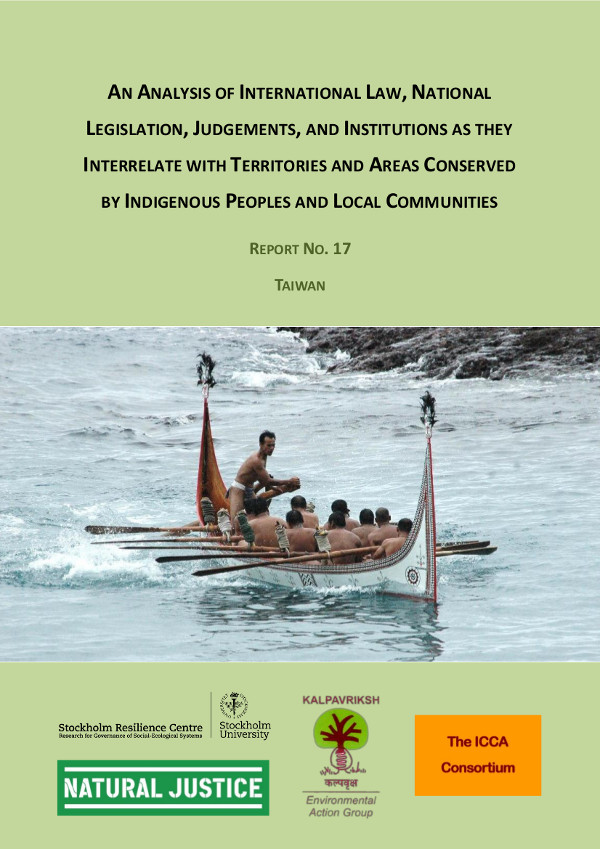First published on 09/19/2012, and last updated on 01/23/2019
No 17 Taiwan, Province of China
According to the Article 2 of the Basic Act of Indigenous Peoples, “indigenous peoples” are defined as the traditional peoples who have inhabited Taiwan, Province of China, and obtain the approval of the central indigenous authority upon application. By 2011, the Council of Indigenous Affairs recognizes 14 indigenous peoples, including: Amis, Atayal, Paiwan, Bunun, Puyuma, Rukai, Tsou, Saisiyat, Yami (Tao), Tsao, Kavalan, Taroko, Sakizaya and Sediq.
There are about 512,700 indigenous people (including 23,000 people who did not identify themselves as belonging to any group) recognized by the Basic Act of Indigenous Peoples enacted in 2005 which occupy around 2% of the total population of Taiwan. These communities are spread over 16,000 square kilometers, about 45% of Taiwan’s land coverage.
Between 2011-2012, the ICCA Consortium undertook an international-to-local analysis of a spectrum of laws relevant to ICCAs. The reports analyze the effects of laws, policies and implementing agencies on ICCAs, and explore the diversity of ways in which Indigenous peoples and local communities are using the law to sustain the resilience of their ICCAs. Goals:
- Recognizing and supporting conservation by indigenous peoples and local communities.
- Analyses of international law, national legislation, judgments, and institutions as they interrelate with territories and areas conserved by indigenous peoples and local communities.
The synthesis report was launched in 2012 at the World Conservation Congress (Jeju, Korea) and the 11th Conference of the Parties to the Convention on Biological Diversity (Hyderabad, India)
